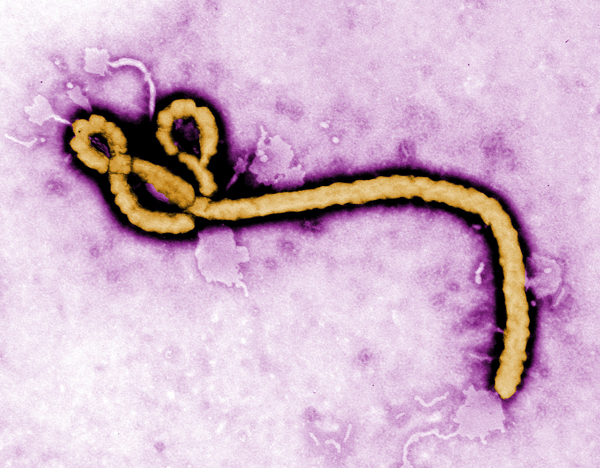- South Texas Students Meet Accordion Music Icons Los Tigres Del Norte In Edinburg Thanks To Khs America/Hohner Alianza Académica Initiative
- Fragile Planet Offers a Nighttime Wildlife Experience
- Falcons Soccer Off & Running
- Cameron County Receives Funds to Improve Two Parks
- Falcons Complete First Half of 32-6A
- School District to Help out Victims of California Wildfires
- Sand Castle Days Continued Despite Unexpected Weather
- Ready for District
- Discussion of Garbage Dumpster Rates, Agreements Between State & City on Highway Regulations, and More
- 31st Annual Shrimp Cook-Off is Right Around the Corner
Ebola Patient Dies, But Risk for the Average Texan is “Zero”
- Updated: October 24, 2014
by John Michaelson/TNS
DALLAS – The first Ebola patient to be diagnosed while in the U.S. has died at a Dallas hospital, and while the death of Thomas Duncan has raised concerns, experts say the risk for the average Texan is slim to none.
Dr. A. Scott Lea is an associate professor of infectious diseases at the University of Texas Medical Branch at Galveston, where a lot of the primary research is being done on Ebola and possible treatments.
Lea notes that the virus is not an airborne disease, but transmitted by blood and body fluids.

Texas health officials are reassuring residents that they are not at risk of contracting Ebola, unless they had contact with Thomas Duncan, who died on Wednesday at a hospital in Dallas. Photo: CDC Global/Flickr.
“In order to contract the disease you have to have contact with an individual,” he stresses. “You have to actually get their blood and body fluids into your body somehow. And I would say to you that for the average citizen in Texas the risk is probably zero.”
It’s thought Duncan contracted Ebola while in his home country of Liberia, but didn’t become ill until after arriving in Texas last month for a trip to visit family.
Chris Van Deusen, a press officer with the Texas Department of State Health Services, also says the risk of Ebola is zero, with the exception being those people who had contact with Duncan in the Dallas-area.
“There are 48 people right now who are being monitored and that’s through temperature checks, checking for fever or other symptoms twice a day,” he explains. “Of those people, 10 are considered at a higher risk because they had the type of contact with the initial patient that would have made it possible to spread the virus.”
While the average American is not at risk with the current situation, Lea says he fully expects future cases, with the constant flow of people from all over the world migrating to and visiting the U.S.
“I think the thing to watch for is to see if it spreads outside the bounds of West Africa,” he points out. “If we begin to see people move into South and East Africa and begin to see cases there, the task is going to be even larger to try to contain Ebola in that part of the world.”
According to the Centers for Disease Control and Prevention (CDC), the 2014 Ebola epidemic in West Africa is the largest in history.
There have been nearly 7,500 cases and 3,500 deaths to date, with widespread transmission in the countries of Guinea, Liberia and Sierra Leone.
